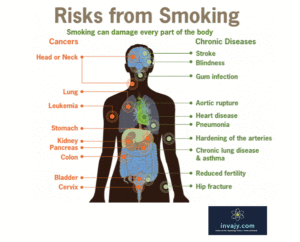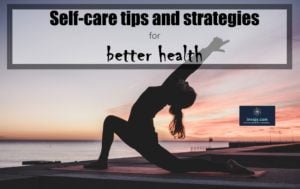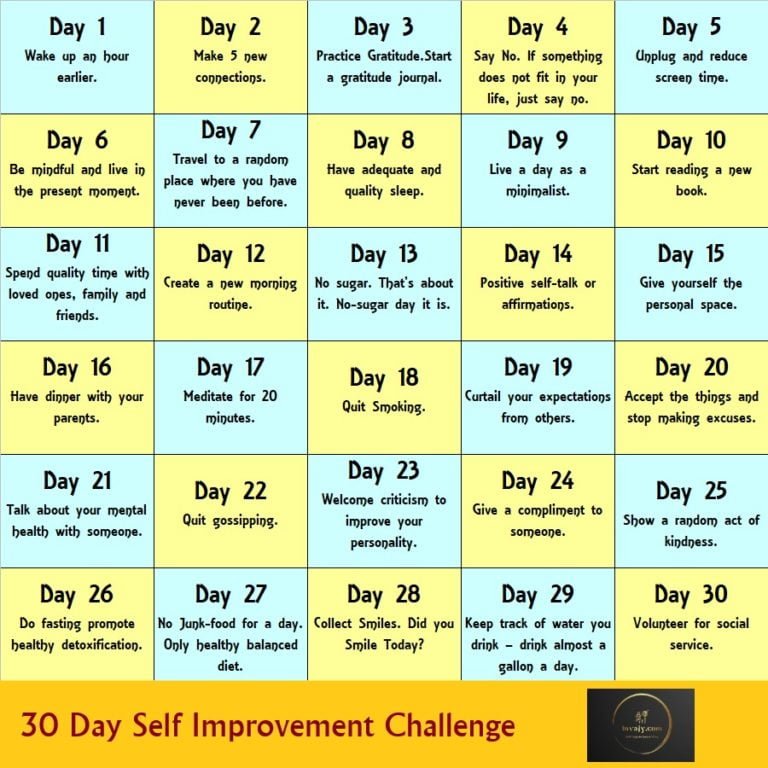9 Self-Care Tips and Strategies for Better Health
Boost your well-being with self-care tips like prioritizing rest, engaging in hobbies, practicing mindfulness, and setting boundaries. Embrace these habits to nurture your mental, emotional, and physical health.

Self–Care is vital….and it has become more significant in the hustle & bustle of today’s busy life. Everyone wants to be a successful person in life and being a successful person often brings in a colossal to-do list. People keep stretching their work timings to meet with never ending priorities and demanding situations. While competing in this success marathon; they forget about regular breaks to take care of self. Without giving time to own body, mind and soul, no one possibly can become a successful person. Self-care is of utmost importance for every single person on this planet.
What is Self-care?
Self–care is nothing but a healthy habits schedule or activities that you follow deliberately in order to take care of your physical, mental, and emotional health. Self-care is what we all do to stay healthy. Whether it’s exercising, maintaining hygiene, eating well, applying sunscreen, quitting drugs/boozing/smoking or treating fevers and headaches.
Although Self–care is a simple concept in theory, still it’s something which most of the people overlook very often.
Why Self-care is important?
Good self–care is crucial to all of us. It helps in maintaining a healthy relationship with self and there are many proven benefits to practicing self-care:
- Better productivity
- Increased self-awareness
- Improved immune system
- Better physical health
- Enhanced mood
- More self-compassion
- Better Stress Management
- Reduced anxiety
- Increased positive feelings
- Boost in self confidence
- Enhanced self-esteem
Self-Care Awareness
International Self–Care Day (ISD) is celebrated every year on 24th of July. It aims to increase public awareness about the importance of self-care to stay physically healthy and mentally fit. ISD encourages everyone to practice responsible self-care. It also focuses on the educating how to prevent or delay illness.
International Self-Care Day was developed by the International Self-Care Foundation, a UK charity with a global focus.
Self-care tips and strategies for better health
Self-care is an essential part of overall well-being. Taking small steps every day to look after your physical, mental, emotional and spiritual health will improve your overall quality of life. Here are the self-care tips to be included in your daily routine, which will add value to your life.
Adequate sleep
A good way to kick start your practice of self-care is by ensuring you’re getting adequate sleep. Sleep is a very basic or fundamental part of a healthy life. While sleep requirements vary slightly from person to person, most healthy adults need between 7 to 9 hours of sleep per night to function at their best. To get enough sleep it is recommended to practice good sleep hygiene. Ensuring silence in your bedroom, going to bed and waking up at the same time every day, not watching TV or using mobile phone in bed, doing some physical exercise during the day, and avoiding caffeine and alcohol before bedtime will improve overall quality of your sleep. Many people have found on hectic days; a quick 15 to 20 minute nap during the day makes them feel refreshed and ready to face the rest of the day.
Balanced diet
Second important aspect which will make a big difference in your self-care regime is balanced diet. Eating well decreases the risk and severity of health issues i.e. obesity, diabetes, heart disease, hypertension, depression and cancer. It also helps with sleeping patterns, energy levels, and your general health. Quality, quantity and type of food also affect your mood.

A healthy diet is good for your physical and mental health. A balanced diet fulfills all of a person’s nutritional needs and includes foods from the five essential food groups, i.e. Fats, Protein, Carbohydrates, Fiber, Vitamins, and Minerals.
Never skip breakfast and always ensure you do not overeat or have heavy food in dinner. Drinking plenty of water, avoiding eating late at night, eating less refined foods , adding more fruits and vegetables are few tricks which will do wonders.
Physical activity
Another significant aspect of self-care is physical activity. With the advancement of technology in last few decades, lifestyle has changed dramatically. People have begun chipping away at physical activity, and as technology is doing more of the heavy lifting, we are becoming all the time more sedentary. If you look at the statistics; physical inactivity is 4th leading factor for global mortality. An average person is sitting (sedentary) 12 hours in a day. 3.2 million Deaths in a year are related to physical inactivity. A new term “sitting disease” has been coined by the scientific community. It is commonly used when referring to metabolic syndrome and the ill-effects of an overly sedentary lifestyle. The sedentary lifestyle is the most unanticipated health threats of our modern time.

So move your body, come out of your comfort zone and do adequate physical activity and exercise. You may include brisk walk, jogging, cycling or any sports activity. Beginning with a goal of walking 10,000 steps in a day will be perfect to be more physically active. You may also join gym; work out club, dance or yoga classes. One of the creative way to work on your fitness can be waist training exercises – Just any workout is fine to be physically more active.
Social Media Self-Care
Set limits and boundaries with social media. Turn off social media apps notifications. Unfollow accounts that make you feel bad. Block people that make you unsafe. Breath before reacting to comments. It’s almost never productive to argue online. If you can take a break for a few days, that would be good for your mental health.
Good hygiene
Maintaining personal hygiene such as washing hands, daily bathing, wearing clean cloths, hair removal, cutting and cleaning nails; oral hygiene i.e. brushing and flossing teeth; menstrual hygiene; makeup hygiene; eating, storing, cooking and serving food hygienically, protecting your body from diseases; keeping your workplace, houses and surrounding environment clean are some of the self-care practices which help to maintain health and prevent the spread of diseases.
Practice mindfulness
Living in the present moment or mindfulness, is one of the best way to confront built-up stress and anxiety. Controlled breathing, meditation, or otherwise finding time to take in your surroundings can be a powerful way to combat negative thoughts. Focusing on the present without judging how you feel and what you think can be both a therapeutic and healthy practice.
Mindfulness is secret of effective self-care. It augments mental well-being and reduces mental illness. Mindfulness based self-care increases your self-awareness about your behavior, thoughts; physical and mental health issues.
Quit bad habits/addictions
Quitting bad habits and addictions can avoid many illnesses. For example, quitting/not smoking will give protection against chronic lung disease and cancer; not chewing/stopping chewing tobacco will prevent mouth cancer; safe sex will protect a person from STD/HIV.

Gratitude or thankfulness
Gratitude or thankfulness is a radical form of self-care. Every now and then it’s important to remind ourselves a self-satisfaction truth: “I am enough. I have enough. I am grateful for what I have in my life now.”
Practicing thankfulness on a consistent basis has been associated with greater satisfaction, enhanced optimism, better sleep, more mental peace, fewer physical ailments, and lower levels of depression and anxiety.
Go outdoors
Ditching the comfort zone of your home can immensely improve your mental and physical health. Similar to meditation, spending time out of doors benefits the brain. A research named – Vitalizing effects of being outdoors and in nature suggests that being outdoors and in nature also makes you feel more alive. Even living in an area with more greenery (i.e. parks and gardens) may boost your overall well-being. According to a research published in Psychological Science, a journal of the Association for Psychological Science, staying in more green area is associated with greater life satisfaction and less mental distress.

Professional medical help
This is an important aspect of self-care. Get your preventive medical check-ups done periodically. This becomes more significant with aging i.e as you grow old. As you grow older, you are more prone to physical and mental illness. Get your periodical medical check-ups every six months.
Apart from these routine periodic check-ups, whenever you notice any symptoms of illness see your family medical professional. Timely diagnose of diseases helps in recovery and cure.
What are some self-care habits and practices that you regularly incorporate into your daily life? Let us know in the comments below. Your experience sharing is much appreciated.






